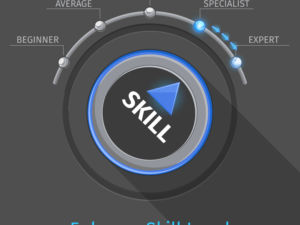Train The Trainer
Course Overview

Behind every spectacular training session is a lot of preparation and meticulous attention to detail. The truly skilled trainer can make a program exciting. The learners will have fun while they are learning. The facilitator has been able to involve their emotions as well as their minds. You will see the involvement, and you will feel the energy. In our Train The Trainer Course, we enable our delegates with necessary skills and knowledge to efficiently and effectively plan, prepare and present interactive training sessions.
Goal of Course:
To reach this stage as an adult educator isn’t always easy, but success isn’t just for the naturally gifted. It is possible for all of us who put effort into our personal growth and development, because we want the enormous satisfaction that comes from working with others to help them reach their potential as human beings.
Our Train the Trainer course is meticulously designed to empower participants with a profound understanding of facilitation and training principles, enabling them to excel as instructors in diverse organizational settings. Through comprehensive training program, our participants delve into defining the facilitator role, addressing audience needs, and mastering communication techniques.
With an emphasis on experiential learning and practical application, our train the trainer course cultivates essential competencies for trainers, equipping them to plan and deliver impactful training sessions effectively. By fostering open discussions, conflict resolution, and training evaluation, our aim is to instill confidence and competence in participants as they navigate the dynamic realm of training courses for trainers.
Duration:
5 days
Language:
English
Training Objectives
- Define the role of the facilitator and how it differs from trainer and presenter
- Identify your audience and perform a needs analysis
- Accommodate to Learning Preferences
- Understand the Learning process
- Learn Competencies for Adult Educators
- Learn Level of performance and need motivation theories
- Understand Team Teaching
- Understand and implement techniques that facilitators use to effectively communicate with and lead a group
- Interpret difficult Situations, resolve conflicts and cut through time wasting and diversionary tactics
- Plan an interactive learning program by understanding your audience
- Discover the value of agreeing the Learning within organizational Context
- Set clear objectives and outcomes
- Design experiential learning programs that are aimed at creating learning
- Plan and prepare facilitation sessions
- Utilize strategies for creating the right facilitation environment
- Training Preparation, Evaluation, and Presentations
- Using audience engagement drivers (Visual Aids – Activities – Case Studies – Role-plays etc)
- Techniques to effectively conduct training Event
- Use facilitation activities which ensure the message is understood and adopted
- Facilitate open discussions
- Understand the four levels of evaluation
Module Outlines
Module 1: Introduction to the identification of needs
- Opening & Ice Breaker
- Defining ability and motivation
- Defining the Facilitator Role
- Training needs
- Level of performance and need motivation theories
- Training & Organizational Environment
Module 2: Communication
- Communication that leads you to understanding before being understood
- Principles for effectiveness communication
- Identify your style of communicating
- Identify the communication styles of your employees
Module 3: Techniques and Needs Identifications
- Job & Task Analysis
- Skill matrices
- Diagnostic Meetings
- Survey Methods
- Appraisals
- Departments Centers
- Critical Incident Techniques
Module 4: Agreeing the Learning within organizational Context
- The training Function
- Factors that influences its effectiveness
- Management responsibility to training
- Structure of the training Function
- Changing roles of the trainer
- Agreeing the learning needs
- Prioritization of needs
Module 5: The Learning Process
- Learning Objectives
- Bloom’s Taxonomy of Educational Objectives
- Adult Learning
- Experiential learning cycle
Module 6: Designing Learning Event
- Defining the design
- Session plans
- Structuring the program
- Employee development
Module 7: Preparing Presentation Material
- Visual Aids
- Preparing the Visual Aids
- Preparing Activities
- Preparing Session Plan
- Preparing Participative Manual
- Case Studies
- Role-plays
Module 8: Conducting a Training Event
- Before the presentation
- Delivering Presentation
- Using analogies, metaphor and effective speech
- Participative delivery techniques
- Room layout
- Group discussion
- Control
- Running exercise
- Reading group dynamics
- Dealing with difficulties
Module 9: Evaluation
- Types of evaluation
- Defining Assessments
- Assessment methods for knowledge and understating
- Assessment for Skills
- Giving Feedback
- Records
- Kirkpatrick’s levels of evaluation
- CIRO
- Jack Philips
- Measurement
Module 10: ROI
- Defining ROI for Non-monetary exercise
- Qualitative vs. Quantitative
- Reporting Effectiveness
Customized Learning
Leap To Success is offering a variety of learning options to meet current realities and can be adapted to suit your business needs. These options include variants of online, blended and on-site course formats.
Face To Face Learning
Enabling you to have a face to face interactive and engaging learning experiences led by renowned industry experts and thought leaders with extensive practical experience who will employ a variety of interactive learning techniques, including short high-impact videos, case studies, assessments, role plays, in addition to on-going support.
Virtual Learning Labs
Interactive online learning held in real-time using Zoom and are led by international subject matter experts who incorporate case studies, breakout rooms, guided practice, simulations and discussions to maximise your learning experience.
General Methodology
Similar to any L2S training program, this program offers an interactive learning experience in which will allow the delegates to reflect on their learning through an informative, indulging, and fun classroom experience. The design of the training session focuses on the following attributes.
Concrete Experience: The delegates will learn by doing
Reflective Observation: Reflecting on the newly experienced skill-set
Abstract Conceptualization: Developing deeper understanding to the learned concepts
Active Experimentation: Providing the delegates with realistic tools that can be tested in the real life
Sign Up For the Course
